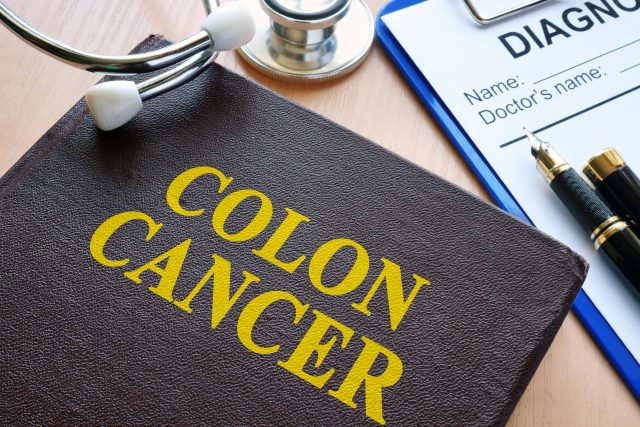Research has shown that younger adults with colorectal cancer are often diagnosed too late when the cancer has already spread. Most patients with the cancer who are older than age 50 are diagnosed in the early stages of disease, but younger patients usually don’t discover their cancer until it is stage 3 or 4.
 The study, which will be presented at the American Association for Cancer Research’s annual Atlanta meeting this week, looked at 1,195 colorectal cancer patients and survivors. Patients were mostly from the United States, ages 20 to 49. The study shows that 57% of those patients were diagnosed with their cancer between the ages of 40 and 49, one third of them were diagnosed between the ages of 30 and 39, and 10% of them were diagnosed before age 30.
The study, which will be presented at the American Association for Cancer Research’s annual Atlanta meeting this week, looked at 1,195 colorectal cancer patients and survivors. Patients were mostly from the United States, ages 20 to 49. The study shows that 57% of those patients were diagnosed with their cancer between the ages of 40 and 49, one third of them were diagnosed between the ages of 30 and 39, and 10% of them were diagnosed before age 30.
Colorectal cancer typically affects people over the age of 50, so there aren’t any screening recommendations for younger patients. Many doctors even dismiss symptoms because the disease is rare in this age group, which means the cancer is missed when its still in its early stages.
 Kim Newcomer, for instance, knew about the symptoms of the disease, especially since her father was diagnosed with it at age 46. When she began experiencing regular constipation, her primary care doctors gave her laxatives rather than exploring other options. After visiting six different doctors who couldn’t see anything wrong, Newcomer developed a chronic cough that led to a chest x-ray. When the scan showed lesions in her lungs and breast, doctors ordered a biopsy that confirmed cancer. They then realized that the cancer originated in her colon.
Kim Newcomer, for instance, knew about the symptoms of the disease, especially since her father was diagnosed with it at age 46. When she began experiencing regular constipation, her primary care doctors gave her laxatives rather than exploring other options. After visiting six different doctors who couldn’t see anything wrong, Newcomer developed a chronic cough that led to a chest x-ray. When the scan showed lesions in her lungs and breast, doctors ordered a biopsy that confirmed cancer. They then realized that the cancer originated in her colon.
It took eleven months after Newcomer reported her symptoms to receive her diagnosis of stage-4 colorectal cancer.
 Patients themselves oftentimes don’t think to visit their doctors when they have symptoms, as they believe they’re too young for the disease. The study showed that 63% of patients and survivors waited between 3 and 12 months to see their doctors about symptoms. That’s why people like Newcomer think it’s important to raise awareness about this issue and make sure people know what the symptoms are.
Patients themselves oftentimes don’t think to visit their doctors when they have symptoms, as they believe they’re too young for the disease. The study showed that 63% of patients and survivors waited between 3 and 12 months to see their doctors about symptoms. That’s why people like Newcomer think it’s important to raise awareness about this issue and make sure people know what the symptoms are.
Symptoms of colorectal cancer can include diarrhea or constipation, a feeling that the bowel does not completely empty, blood in your stool, frequent gas pains or cramps, unintended weight loss, fatigue, nausea, or vomiting.
According to the American Cancer Society, adults with an average risk of colorectal cancer should begin screening at age 45. Those with a higher risk include African Americans, Alaska Natives, and people with a family or personal history of colon or rectal polyps. Those risk factors could mean that you should get screened at an earlier age.
Although it is still rare for younger adults to get colon cancer, there has been an increase of the disease in that age group in recent years. It’s important to be aware of the symptoms and know that the disease can strike even if you are young and healthy. If you have a family history of the disease, you should be especially vigilant and persistent.




























